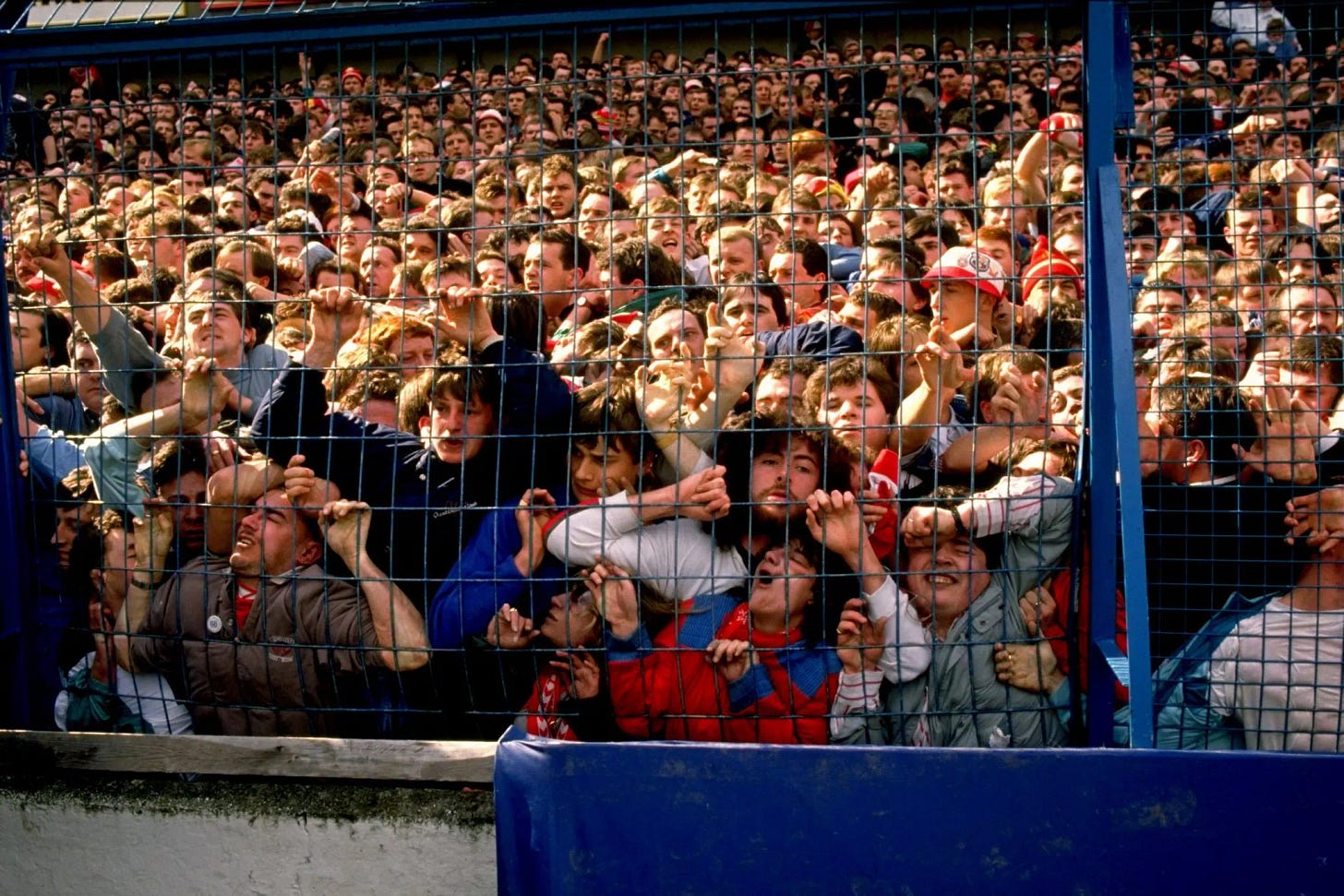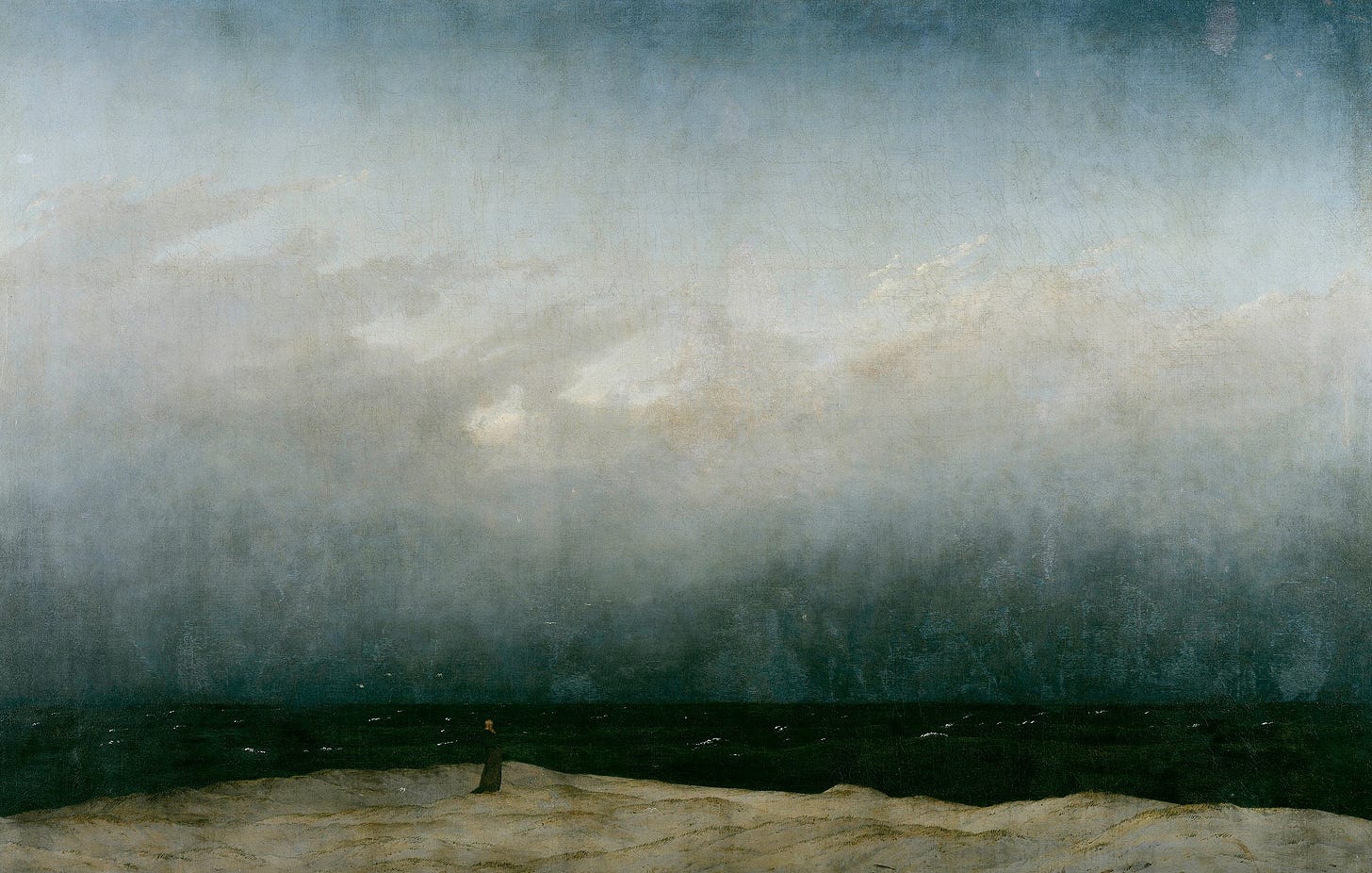At Capacity
Preface
In the kitchen. A six-top dining table in the center and a card game. Small glasses sticky with Pastis, empty cans of Modelo scattered, the dust of mid-August lingering in the air on a Sunday evening. It’s crowded, and the volume in the house increases as the game goes on. Someone puts on a song, the game pauses for a quick dance and it gets louder. Micro-conversations are pulled across the room, taken outside for a smoke, carried across the table. The dust settles, the cards forgotten by everyone except the game winner, the mess left for the morning while a movie is being queued up on the projector. The overflow goes to a house show, answers a booty-call, to the bar for pool, the rest off to bed.
Accompaniment
Phillip Glass Étude No. 2
There’s a part in this song around the 2 min mark that picks up what I’m putting down in this piece. Phillip Glass composed Études Nos. 1-10 for practice. Meant to be a lullaby, No. 2 starts peacefully, the melody quavers and finds itself moving back and forth through the full range like mouth-breathing yourself to sleep. Around the referenced mark the piece crescendos into a jarring dissonance; it’s sudden and overwhelming. It comes back down before too long, to the familiar repetitive structure, bringing relief with the reassurance that not every departure is permanent, and that classical music is in fact so sick.
I’ll sometimes allow myself the luxury of putting the soft animal of my body into a box. Once upon a time when this country was great, people liked to quiz themselves into a banal category on a website called Buzzfeed and put off the exhausting project of Identity for later. What character in Fleabag are you, you little slut? Something cool is that I am an “Extrovert.” I get high on recognizing and experiencing all the worlds outside of my own. I enjoy meeting new people, trying out bits, and doing a song and dance for the very sake of coming out of my own insecure neuroses. Too much time spent alone and you’d be getting this Substack as often as I initially promised! Sorry I was busy taking it all in.
Acknowledging all the microcosms happening in a social environment can be overstimulating for the contrasting “Introvert”, and the truth is they’re right to feel that way. That’s kind of the point. The burst of energy I get from absorbing the enormity of my surroundings will depart with equal force, leaving me sweaty and anxious in the night after everyone’s gone home. You’ll be shocked to learn that the bits don’t always land and the ego has a way of eating itself.
There’s a miserable kind of sleeplessness that feels like the TV was left on. Images humming in the mind at random - deep, forsaken memories and fabrications appear in a doom-scroll behind closed eyes. Makes a grown man get in the fetal position under the damn blankie. I have family members who have insomniac tendencies too. If not put to bed, my grandma will stay up folding towels, napkins, while watching Cash Cab all night. An uncle often found snoring in front of Sportscenter in 5k full volume after a long day at work. He doesn’t talk much. Much like a co-op house party at overcapacity, hordes of uninvited thoughts can come stumbling into the brain, asking for anything and everything you might have left. It becomes easy to obliterate this claustrophobia with the isolation of a screen, but does the streaming service know that I’m trying to keep the demons away when it asks me if I’m still watching?

I missed the Ritalin boat as a child, but conveniently, solutions for this particular ailment are algorithmically lined up between the escape scroll to get you on a monthly subscription: meditation apps, strenuous exercise programs, ashwagandha (?). But to those of us who have this predisposition, the storm is always inevitable. I doubt Caspar David Friedrich’s Monk by the Sea was reflecting on Brat Summer or Limerence or Web3 or Cop-mala or wondering if he gay-baited too much at a party. Unfortunately the sublime thought-storm is much more difficult to stand back and admire as much as Kant might have us do, but doing so might be the only solution.

The German Romantics saw the sublime as a way to interface with ourselves, in the face of a natural power that escapes comprehension. When you stare out at the ocean or feel dwarfed and inconsequential compared to say, a redwood tree, you might be experiencing the sublime. Similarly, when the subconscious floods the mind, reality is distorted, our perceptions augmented. Filled with enchantment and terror, reason itself is thrown out the window and we are left so overwhelmed only to reach over, unplug the charger and remediate with Brainrot. To take on this displeasure and rise above it is Immanuel Kant’s challenge. To acknowledge their immensity and more importantly, experience our own smallness against the vast depths of our own heads. Like the monk in the oil painting, a simple zooming out can show how small you are compared to it all, even your own stupid thoughts. Not to mention it’s unattractive to be self-centered. You can tremble at the great nothingness of outer space and also recognize you are a part of it.
We fear the sublime (and specifically the sublimity of our minds) because it calls into focus our ephemerality as humans. Who are you without your Hogwarts house, without your friends and family and experiences? So much of our lifetime is spent assembling a “self.” Zen Buddhists use the concept of non-attachment to liberate themselves from this fear. Separating oneself from personally identifying with one’s interior world, understanding the flow of both physical and metaphysical space. A mindfulness practice creates space within, fostering an innate solitude that names the feelings and thoughts as they are: neither good nor bad; fleeting in the grand scale of things. Despite how deeply personal our conscious and subconscious minds are to us, there are times when we should simply let them transcend the daily chore of temporal existence.
I like to land somewhere between Egoism and Enlightenment. After all, many of the thoughts that cram our minds can at best, motivate reflection, allow us to deliberate life’s hard choices and at the very least, help construct a chill personality.
Unfortunately, “philosophical inquiry” is hardly pillow talk. It would clearly benefit me to get out of my own head and into my body. To tune into both at once is a skill that needs to be practiced, so consider this an étude on clearing the mind and going to bed. On good days I’ll Art Handle so hard that I’m too tired to think about anything and have a blank space (baby) in my dreamscape all night long. Real smooth-brained, flow state type shit. But when my brain inevitably reaches critical mass again I’ll have to insist on a Humanities approach, take a step back in awe of how fucked up my mind can get and just let it go. And also, probably leave my phone outside of the bedroom. Adam is not his thoughts, Adam is not his feelings, Adam is not his body…Adam is a speck in time and should try and enjoy the ride.
The heattech under t-shirt under hoodie under puffer jacket could only do so much against the morning wind on the Halsey St. platform. It was my first real Winter in New York and the coldest I’d ever been. I was happily far away from everything. Barely knew anyone, barely known by anyone. While waiting for the J to take me to my new job I felt the freedom that comes with this kind of isolation, to grow and change and reinvent myself away from all the baggage I left across the country. I paused Cattails by Big Thief as the train’s sliding doors opened to a full car. I rushed in and packed myself into the crowd, thankful for the warmth.






